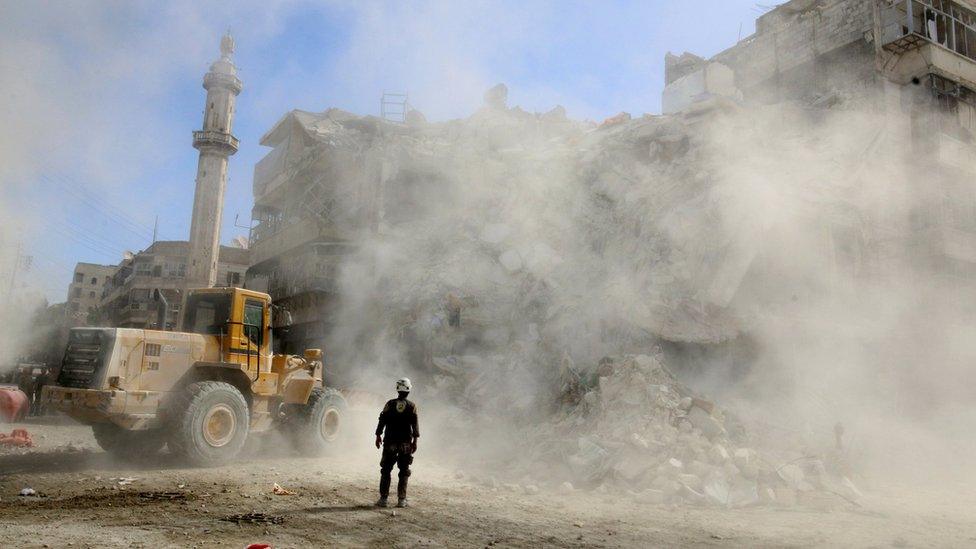Aleppo air drops 'would endanger UK planes'
- Published

British aircraft would risk being shot down if they were used to drop aid to the besieged Syrian city of Aleppo, a Foreign Office minister has said.
Tobias Ellwood said he was not ruling out the tactic but warned it would be "hugely complicated" and could place UK forces "in harm's way".
He was responding to an urgent question in the Commons on Aleppo.
More than 120 MPs have urged , externalthe government to authorise drops of food and medical supplies.
Their demands were reiterated in the Commons as Labour's Alison McGovern urged ministers to consider the move as a "last resort".
She read out a statement from the Syrian Civil Defence, also known as the White Helmets, which warned that Aleppo is "in a state of emergency", with 279,000 people "under siege" for 94 days.
Mr Ellwood warned aid drops could land "in the wrong place" or "go to the wrong people", saying negotiating safe passage for land vehicles was a better option.
Given the scale of the aid that needs to get in, the number of aid drops would be "enormous", he said.
And responding to shadow foreign secretary Emily Thornberry, who also called for air drops to be considered, he said: "She's now advocating that British aeroplanes, Hercules aircraft or otherwise, go into Syrian air space and make those drops.
"They will be shot down."
'No alternatives'
Challenged over his comments later in the debate, Mr Ellwood said there was "the possibility that a British aircraft could be shot down".
He added: "I use this opportunity to say that we are putting British air personnel in harm's way."
Mr Ellwood also referred to the first Commons vote on air strikes in Syria, which was rejected in 2013, saying the UK had "blinked" when it could have taken action.
Mr Ellwood said the government could only explore other "opportunities" with the full support of Parliament.
Ms Thornberry said nobody was "underestimating the complexity and risks involved" with air drops.
She added: "But with no alternatives, with thousands facing death if they do not get immediate supplies of food and medical equipment, these are risks we must be prepared to take."